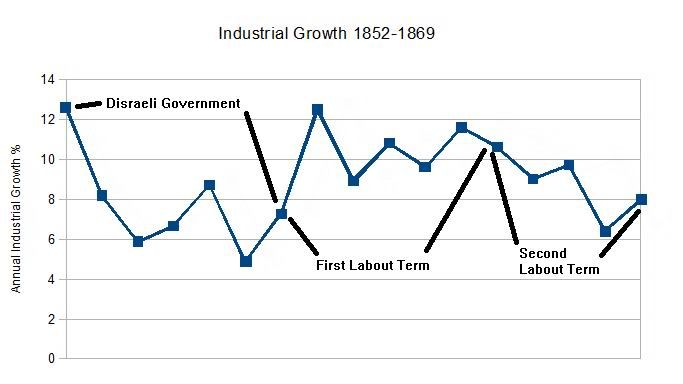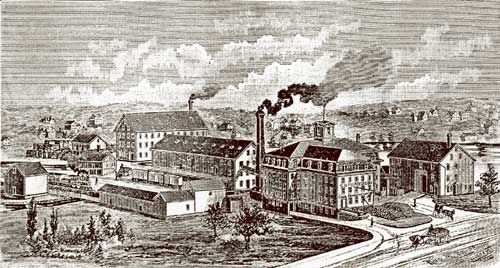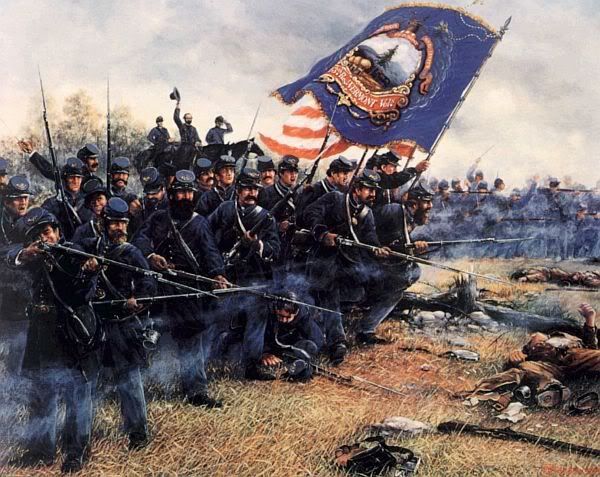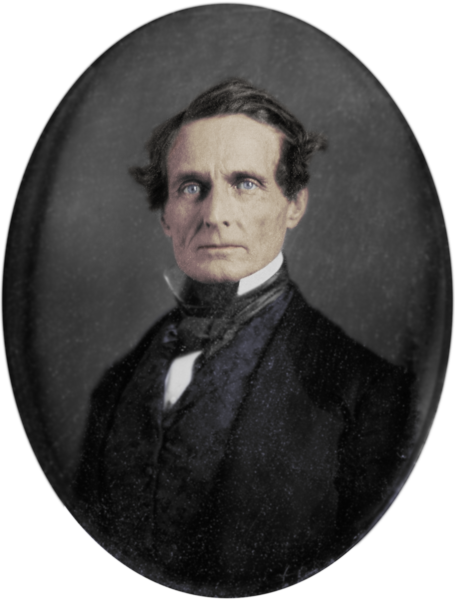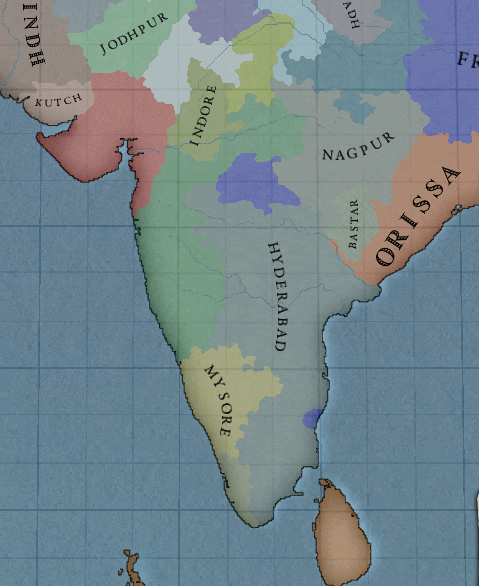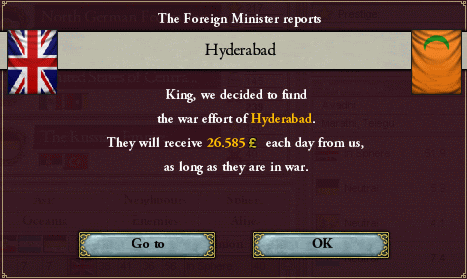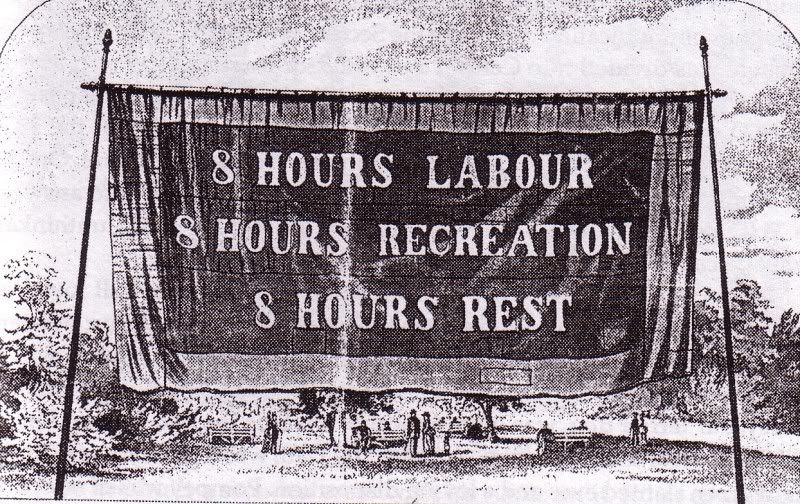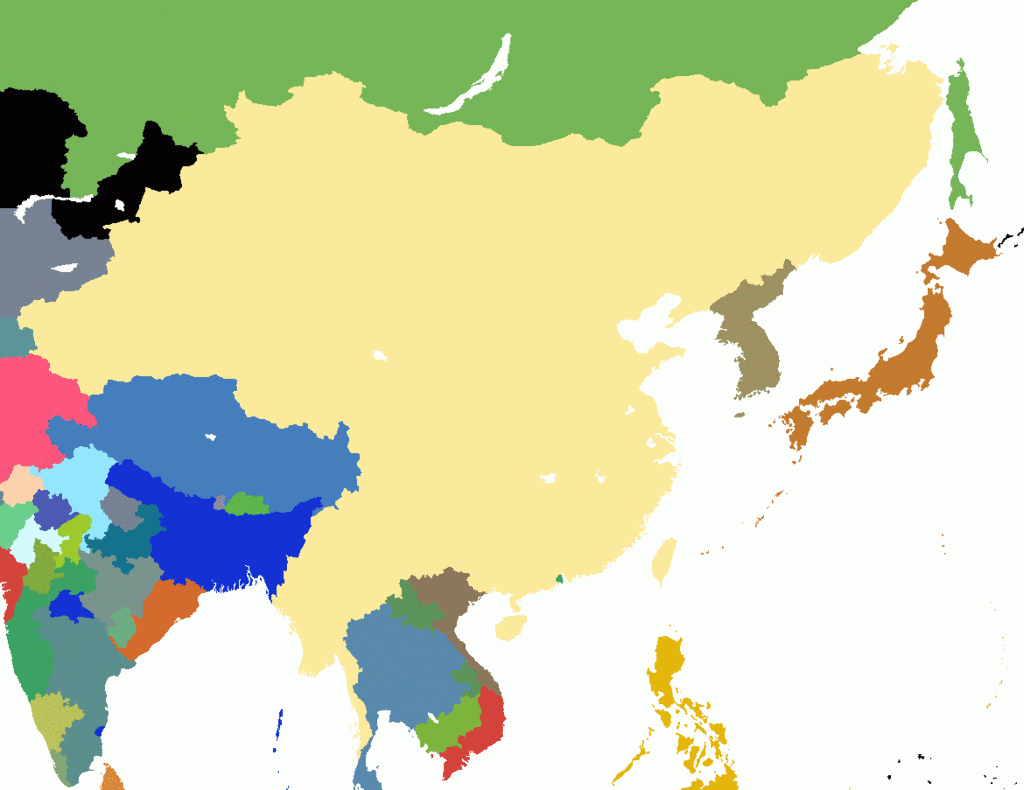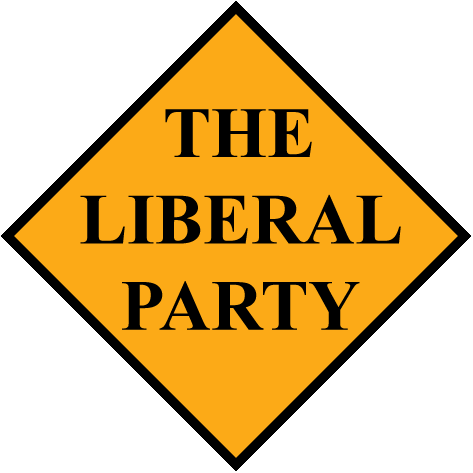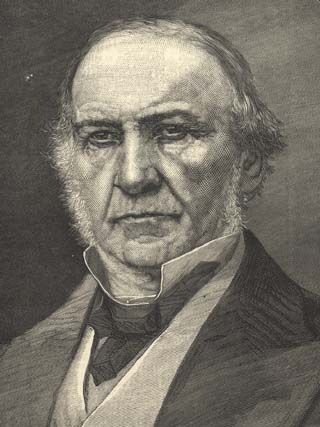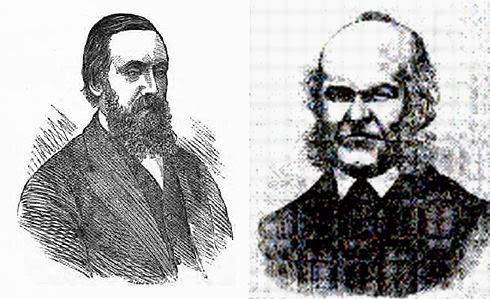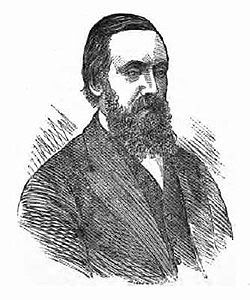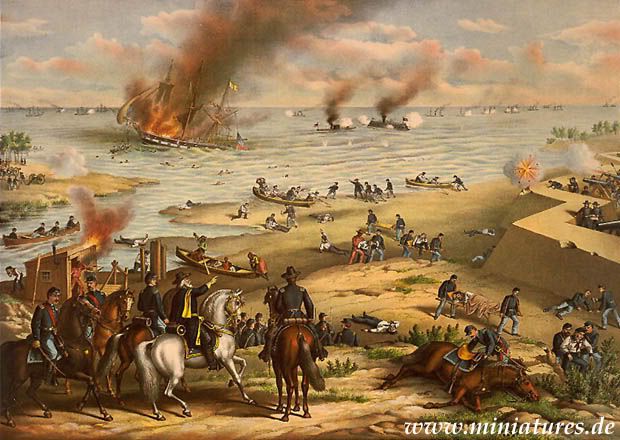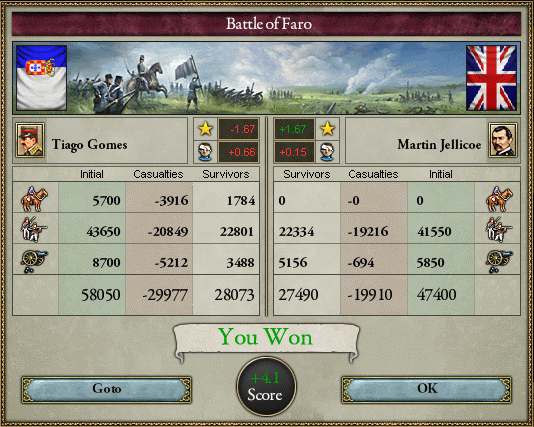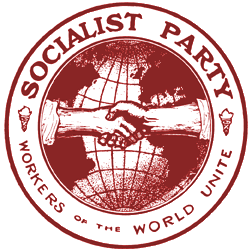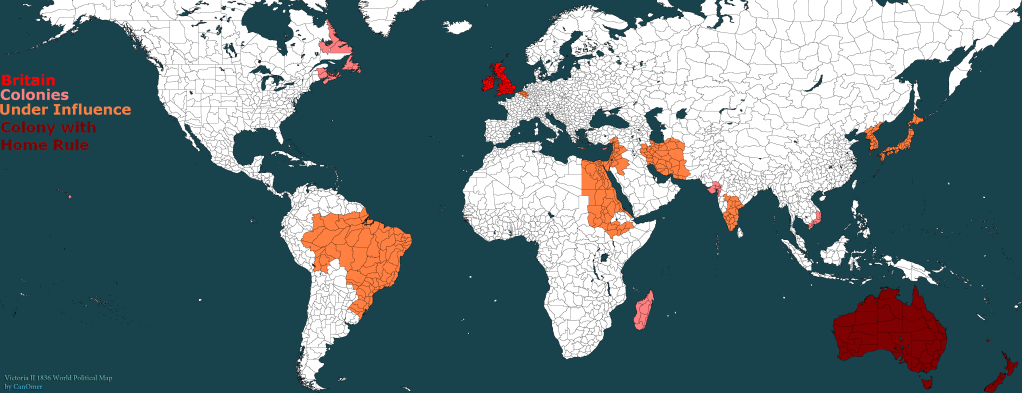The Sixth Parliament of the British Republic 1864-1869 (Part 2)
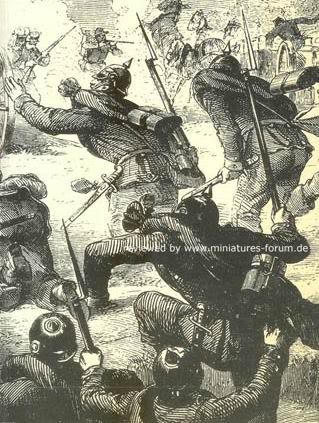
Between April and December 1866 the unstoppable rise of Prussia continued as a lightening quick war was fought with the fading Tsardom of Russia. Russia's armies were defeated and much of Poland occupied before she eventually surrendered a full one half of the territory of the Congress of Poland. The military defeat as hardly surprising, it was the failure of Europe's other powers to react that was shocking. Austria seemed more concerned with asserting itself in Russia's old backyard of the Balkans, France was dealing with internal instability caused by a series of large-scale strikes organised by illegal socialist organisations whilst both Sweden and Britain were wrapped up in their own respective policies of isolationism. With Austria's influence in Southern Germany now forever replaced and without a rival power confident enough to face her alone it seemed that it was only a matter of time before the King of Prussia could crown himself Emperor of Germany.
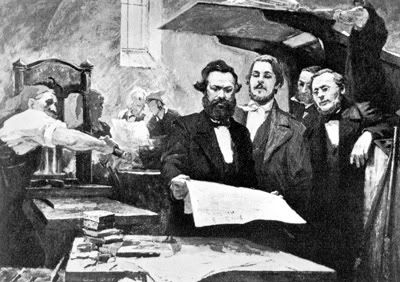
Back in London the year 1866 saw the publishing of Karl Marx's magnum opus – Das Kapital, Volume One, in German and shortly later in English. The book would go on to become extremely influential amongst far left politics the world over. But just as support for socialist movements was continuing to rise across Europe disaster struck.
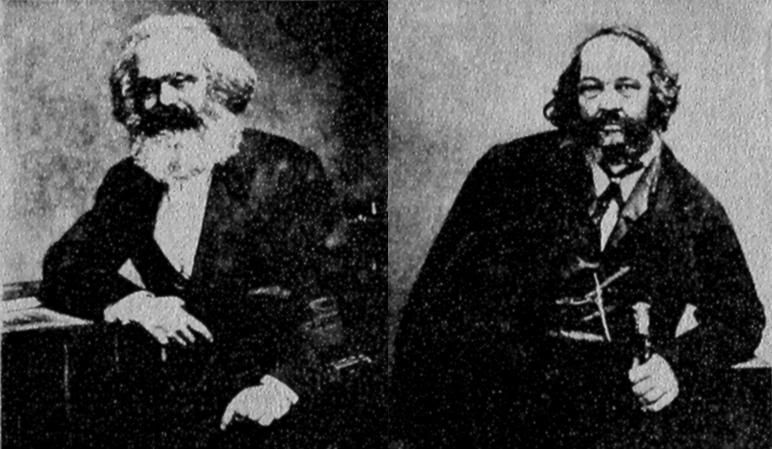
In each passing annual conference the First International had become ever more polarised between those who were more supportive to the ideas of Karl Marx and those more on the side of Mikhail Bakunin. With the central issues of the state, Marxists supporting the idea of a state after the revolution and Anarchists opposed, and of the manner through which the revolution should be won, Marxists favouring Parliamentary action and Anarchists favouring insurrection, the two central wings of communism were growing further apart. All this came to its climax in the Brussels Congress of 1867 in which the Anarchists were expelled and the International collapsed. It had lasted just 9 years. The Prussian statesman, Otto von Bismarck, is said to have remarked ''Crowned heads, wealth and privilege may well tremble should ever again the Black and Red unite!''
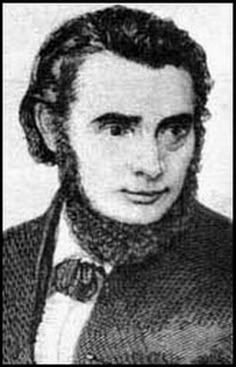
The International wasn't the only major left wing institution to come down in 1867. Having led the Labour party since its inception in 1851 (some 16 years before) and having reigned as Prime Minister since 1858 (9 years before) George Harney had made the decision that he would not stand in another election. He believed that it would be a much greater boost to Labour's chances if his replacement were given a significant period of time over which they could make themselves prominent in the public eye. He therefore intended to resign in late 1867. However, there was a serious problem.
Over the course of its history the Labour Party had become increasingly divided between the the right and the left. Those who wanted slow and more limited reform and those who wanted more immediate and more significant reform. These two wings were personified in the two primary candidates for the Labour leadership – Thomas Burt and George Odger.
Burt was significantly younger at just 30 years old. He had worked as a miner from the age of 16 and had become very prominent amongst local Trade Unionists in Northumberland at a shockingly early age. In 1862 he arrived in Parliament following victory in a by-election. He was just 25. His inspiring speeches in Parliament and popularity with voters quickly drew the attention of Prime Minister Harney, following the 1864 election – which released several more cabinet positions for Labour MPs the youngster was brought up to a lofty position within the cabinet. A personal friendship with Harney and a strong degree of popularity with party members and MPs quickly brought him to the very forefront of British politics. Harney had been just 34 when he created the Labour Party itself – now a chief candidate to succeed him was even younger.
Burt himself was a definite moderate. He supported a gradual pace of reform, the absorption of the Progressive Liberals into the Labour party, friendlier relations with Gladstone's Liberals, a more active foreign policy and a strong stance against violent fringe elements of the party apparatus.
George Odger was a very different figure. 54 years old (4 years older than Harney) he was already a major Trade Unionist in London when the Civil War broke out and fought alongside the rebels. After the war he would go on to lead the London Trades Council, preside as President over the First International, take part in the forming of the Trade Union Council (a national organisation of Trade Unions) and make many a shoe before finally standing to become an MP in 1858. Standing in his local seat within the city of London he won an awesome 80% of votes – the largest percentage in the entire country. Harney had effectively been forced to bring him into the cabinet to appease the Labour Left. In sharp contrast with Burt he had an icy relationship with the PM and did not enjoy the same level of support amongst Labour's MPs – many of whom regarded him as far too radical to lead a broad movement like Labour.
Identified by many as Marxist he wanted a much quicker pace of reform, wanted working class control over industry, opposed any attempts to bring Britain into wars over Empire and wanted to bring the the Labour party's political wing closer to the social movement by increasing party democracy.
It was little surprise that Thomas Burt was to win out in the leadership race- becoming Prime Minister of the Republic on October 23rd 1867. What was a surprise was how quickly relations with the Labour Left would break down. In a move that seemed to be an attempt to test the water with the new Prime Minister Odger proposed a Bill that would increase the safety legislation within steel mills after a report for published revealing a high frequency of grievous injuries and even deaths. Rather than take this opportunity to make a peace with the Left Burt did not only call upon the party and its allies to vote down the Bill but also publicly criticised Odger.
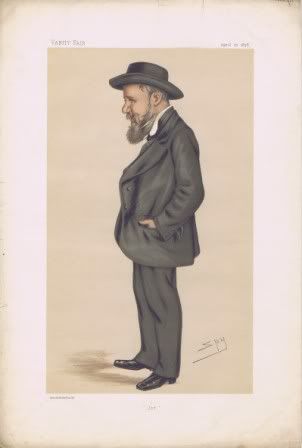
The next insult came in December when Cowen and the Progressive Liberals – that tiny party of 9 MPs that had long been infatuated with the Labour Right – agreed to officially join the Labour Party as and independent 'platform'. The Progressives would be allowed to continue to organise themselves as a semi-independent group but would accept the Labour whip and would stand in elections as members of the Labour Party. Furthermore they were promised that 20 Progressive Liberal candidates would be allowed to stand in all further elections so long as they remained a part of the Labour Party. It seemed to be a good deal for both sides, but it was yet another slap in the face for the Left. A move that clearly strengthened the party's right and introduced elements who seemed to have no care what so ever for the idea of working class rule.
Then on January 3rd 1868, after spending the past decade avoiding it, the Labour Party was hurrled into a foreign war. In India the Portuguese, having recovered from their earlier war with the Nizam, invaded Travancore and Mysore – two Indian states under British protection. Left with no other option Burt joined together with the opposition leaders in calling for war with the Portuguese! And to hell with the dangers of French intervention!
In an initial wave of public enthusiasm a large force of around 40,000 men was dispatched to the Algarve whilst the Republican Navy destroyed the wooden ships of the Portuguese fleet and blockaded her ports. The voices of opposition to the war coming from the Left were being drowned out by popular enthusiasm.
The Battle of Faro (January-March) would change things. Despite the fact that the Battle marked a resounding British victory it cost the lives of 20,000 soldiers – half of the entire expedition. Suddenly that initial war euphoria was starting to die away and the pro-peace lobby would rise in strength once more as a grinding war across the entire of Portugal involving sieges of major cities and a local guerilla campaign ensued.
Perhaps the most vocal anti-war group were the Anarchists. Since the death of the International the year before Britain's reasonably small Anarchist movement had been largely focussed around a group of London based clubs where Anarchists tended to gather. It was in one of these clubs where the plot that would have far reaching consequences for the Socialist movement in Britain was to be born.
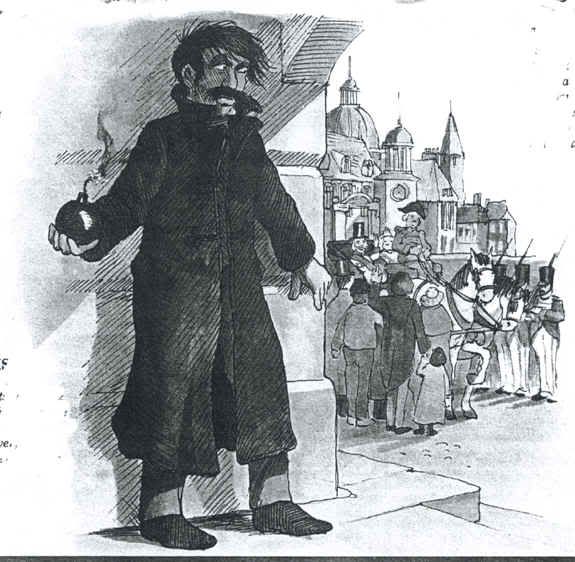
The idea of Propaganda of the Deed remains amongst the most failed concepts in revolutionary history. It follows the logic that the best way to get your revolutionary message across to the public is through single high profile acts of violence against hated targets – which should in turn should create mass support. The Finsbury bombing was the first high profile abortion conjured up by this idea. An Anarchist revolutionary attended a BNU rally in support of the war effort in Portugal an quite literally hurled a bomb towards the stage where several high profile BNU delegates were gathered. He killed one BNU MP and 6 members of the public whilst badly injuring a further dozen. The heavy police presence at the rally managed to save the Anarchist from the crowds and dragged him away for questioning. He would reveal a surprisingly complex conspiracy that involved a number of high profile Anarchists in London.
When the news went public all hell broke loose. The Tories and BNU joined together once more in organising a major pressure movement to force the government into action. Facing a wave of pressure Burt reacted extremely rashly – the main Anarchist clubs in London and elsewhere were closed down and hundreds of Anarchists were arrested and imprisoned without trial, several Trade Unions were also encouraged to expulse Anarchist members.
In a poignant cartoon in a left wing newspaper Burt was depicted hand in hand with Alexander Milne and Lord Derby as they trampled together atop a working man holding a sign saying ''Freedom'' whilst Gladstone clapped on from the side and Odger sulked in the corner.
In spite of the strong animosity between Odger's Marxist supporters and the Anarchists these actions horrified them and provided the excuse the Marxists had been looking for to abandon the Burt led Labour Party for good. On May 1st (the anniversary of the party's foundation) Odger delivered a damning speech to Parliament in which he accused Burt of betraying the working class and everything that the Labour Party stood for, he went on to conclude that so long as the party was led by such enemies of the workers he could not remain a member. Odger led a rebellion of some 28 Labour MPs as they moved to form their own party.
On July 3rd the rebels finally regrouped themselves and officially joined together to found the simply named Socialist Party. Ideologically Marxist they received the private support of the man himself and the public support of many former IWA Marxists.
As the Labour Party's presence in Parliament fell from a high of 227 to just 199 its majority alongside the IPP was shattered. Burt managed to secure a tacit agreement with Gladstone's Liberals in which the Liberal Party would give enough support to the government to allow it to function in the name of national unity whilst the war was being fought – but on the condition that elections were to be called immediately after its conclusion..
In truth, the Portuguese were doomed to defeat after Faro. The eventual destruction of the remnants of their army and the fall of several key cities – most notably Lisbon and Porto – finally forced the Portuguese to surrender in February 1869. Having fought for so long Britain demanded some form of compensation – which came in the form of Portugal's small enclave in Guinea, West Africa.
Labour's first foreign war had won the safety of Britain's Indian Empire and a tiny colony in West Africa. It had cost the party the government.



